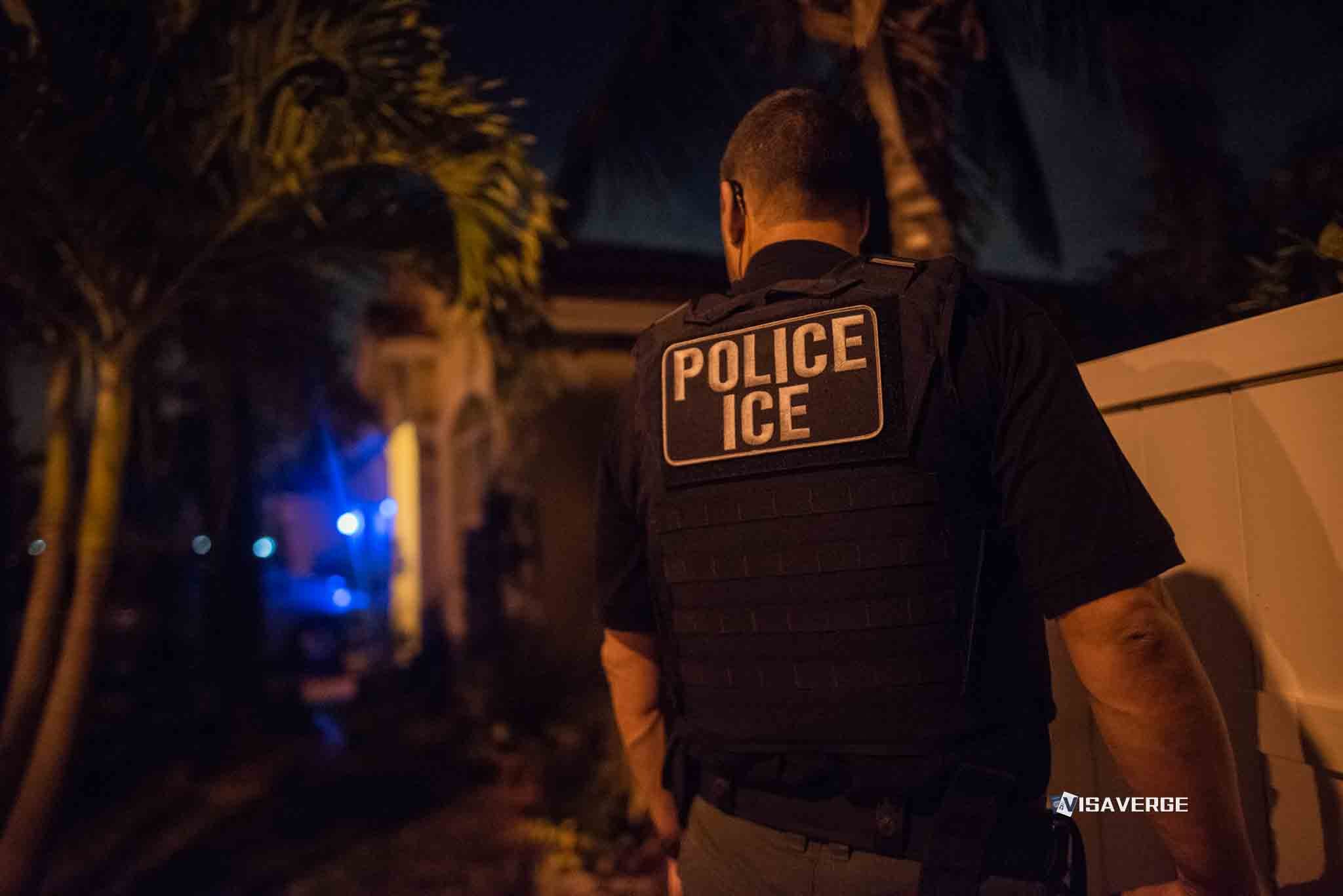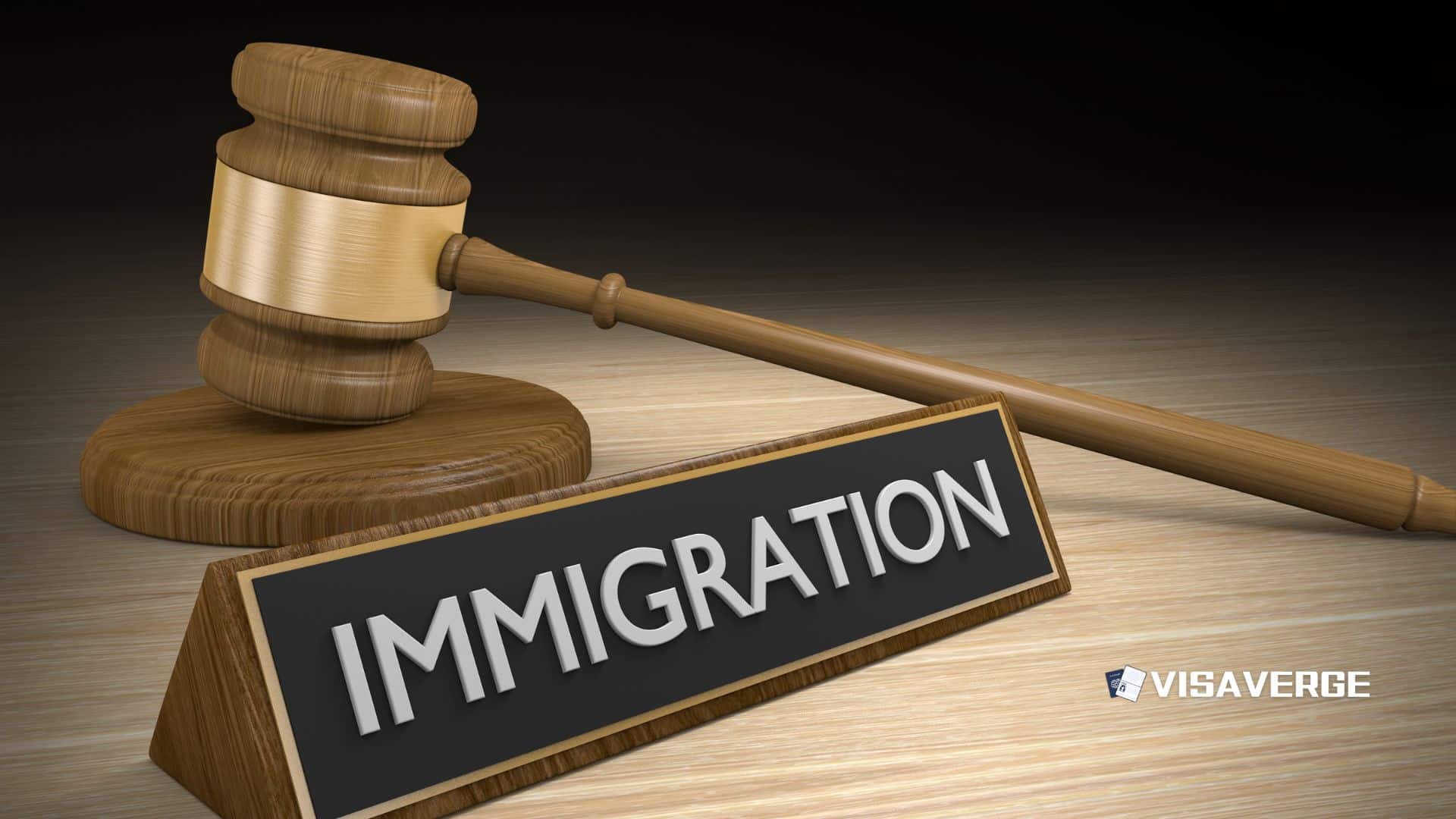Key Takeaways
• Senate passed the One Big Beautiful Bill Act on July 1, 2025, with a 51-50 vote.
• Medicaid funding cuts total $900 billion to $1.02 trillion over ten years, risking 12 million losing coverage.
• Bill shifts Medicaid savings to permanently expand immigration detention and deportation funding.
The Senate’s passage of the “One Big Beautiful Bill Act” (OBBBA, H.R. 1) on July 1, 2025, marks a turning point in United States 🇺🇸 health care and immigration policy. This analytical review examines the purpose and scope of the bill, the methods used to assess its impact, key findings from official sources, and the broader implications for millions of Americans and immigrants. The analysis draws on data from the Congressional Budget Office (CBO), statements from advocacy groups, and reactions from lawmakers, aiming to provide a clear, unbiased understanding of this complex legislation.
Purpose and Scope

The main purpose of this analysis is to explain the Senate Passage of the One Big Beautiful Bill Act, focusing on its historic Medicaid cuts and the redirection of funds to immigration enforcement. The scope covers:
- The legislative process and Senate vote
- The scale and nature of Medicaid cuts
- Changes to immigration enforcement funding
- Projected effects on health coverage and vulnerable groups
- Stakeholder perspectives and official reactions
- Practical consequences for health providers, states, and immigrants
- Limitations and uncertainties in current projections
This review is intended for readers seeking a factual, accessible overview of the bill’s content and its likely effects.
Methodology
This analysis relies on:
- Official legislative documents and summaries from the U.S. Senate and House of Representatives
- CBO budget and coverage impact reports
- Public statements from key stakeholders, including the ACLU, Senate leaders, and health provider groups
- News coverage and policy analysis from KFF Health News and other reputable sources
- Direct comparison of current and historical Medicaid policy changes
Data is presented using clear tables, bullet points, and narrative explanations to help readers understand trends, patterns, and the practical meaning of the bill’s provisions.
Key Findings
Senate Passage and Political Context
- Senate Passage: The Senate approved the One Big Beautiful Bill Act by a narrow 51-50 margin. Vice President J.D. Vance cast the tie-breaking vote. All Democrats and three Republicans (Rand Paul, Susan Collins, Thom Tillis) voted against the bill.
- Next Steps: The bill returns to the House for reconciliation. President Trump has set a July 4, 2025, deadline for signing, but further negotiations may delay final passage.
Medicaid Cuts: Scale and Impact
- Historic Reductions: The bill cuts Medicaid funding by $900 billion to $1.02 trillion over ten years, the largest reduction in the program’s history.
- Coverage Loss: The CBO projects that nearly 12 million Americans will lose Medicaid coverage by 2034, with Medicaid enrollment dropping by 12% nationwide.
- Groups Most Affected: Children, people with disabilities, low-income families, and rural communities face the greatest risks. Over 15 million people with disabilities and more than 70 million total Medicaid recipients are at risk.
- Other Provisions: The bill ends Medicaid funding for Planned Parenthood, restricts higher education opportunities, and imposes work requirements up to age 65 for Medicaid eligibility.
Immigration Enforcement Funding
- Funding Shift: The bill reallocates a significant portion of the savings from Medicaid cuts to permanently expand immigration detention and deportation operations.
- Advocacy Concerns: Groups like the ACLU argue this will lead to more due process violations, family separations, and denial of medical care to vulnerable immigrants.
Stakeholder Perspectives
| Stakeholder/Expert | Position/Analysis |
|---|---|
| ACLU, Disability Advocates | Strongly oppose; cite catastrophic harm to vulnerable groups, civil liberties, and due process |
| Senate Republicans | Support; frame as fiscal responsibility and public safety |
| Senate Democrats, Some GOP | Oppose; warn of devastating impact on health care access and rural providers |
| Health Providers, Hospitals | Oppose; warn of financial strain, closures, and reduced access to care |
| Immigration Rights Groups | Oppose; cite increased abuses, family separations, and denial of legal/medical protections |
| CBO, Policy Analysts | Project historic coverage losses, increased uninsured, and deep state budget impacts |
Data Presentation and Visual Trends
Medicaid Cuts and Coverage Loss
- Total Medicaid Cuts (2025-2034): $900 billion to $1.02 trillion
- Projected Medicaid Enrollment Decline: 12%
- Americans Losing Coverage: Nearly 12 million by 2034
- People with Disabilities at Risk: Over 15 million
- Total Medicaid Recipients at Risk: More than 70 million
Geographic and Demographic Impact
- Rural Communities: Face higher risk of hospital closures and loss of local health services
- Children and Families: Disproportionately affected by loss of coverage and stricter work requirements
- States with High Medicaid Enrollment: Expected to see the largest funding losses and coverage drops
Immigration Enforcement Expansion
- Permanent Funding Increase: The bill ensures a long-term boost in resources for immigration detention and deportation, with no sunset or review period.
- Potential Effects: More detentions, faster deportations, and increased risk of due process violations for immigrants and mixed-status families.
Comparisons, Trends, and Patterns
Historical Context
- Previous Attempts: Past efforts to cut Medicaid at this scale failed due to bipartisan opposition and public backlash.
- Current Bill: Represents the most significant rollback of Medicaid and expansion of immigration enforcement in United States 🇺🇸 history.
Policy Shifts
- From Health to Enforcement: The bill marks a clear shift in federal priorities, moving resources from health care for low-income Americans to border and immigration enforcement.
- Work Requirements: The new standard (up to age 65) is stricter than previous proposals, with only limited exemptions.
Stakeholder Reactions
- ACLU and Advocacy Groups: Condemn the bill as a “reckless attack” on health care and civil liberties, especially for children and people with disabilities.
- Senate Republicans: Argue the bill fulfills a mandate for a “safer, stronger, and more prosperous” America.
- Health Providers: Warn of financial strain, possible closures, and reduced access to care, especially in rural areas.
Evidence-Based Conclusions
Based on the CBO’s analysis and stakeholder statements, the Senate Passage of the One Big Beautiful Bill Act will:
- Reduce Medicaid coverage for millions: Nearly 12 million Americans are projected to lose health insurance, with the uninsured rate rising sharply.
- Strain health providers: Hospitals, clinics, and rural health centers will face severe financial pressure, risking closures and reduced services.
- Shift federal priorities: The bill moves significant resources from health care to immigration enforcement, with long-term effects on both systems.
- Increase risks for vulnerable groups: Children, people with disabilities, and low-income families will bear the brunt of coverage losses and stricter eligibility rules.
- Expand immigration enforcement: Permanent funding increases will likely lead to more detentions and deportations, raising concerns about due process and human rights.
Limitations and Uncertainties
- House Reconciliation: The bill must return to the House, where some Republicans are pushing for changes. The final version may differ from the Senate-passed text.
- Implementation Details: States will need to adjust to new funding levels and eligibility rules, but the exact impact will depend on local decisions and federal guidance.
- Long-Term Effects: While projections are based on current data, actual outcomes may vary depending on economic conditions, state responses, and future policy changes.
- Legal Challenges: Advocacy groups may file lawsuits to block or delay some provisions, especially those affecting Planned Parenthood and immigration enforcement.
Practical Guidance and Next Steps
For individuals and families affected by these changes, it is important to:
- Monitor Official Updates: Track the bill’s progress through the House and any amendments that may alter its impact.
- Contact Representatives: Use resources from organizations like the ACLU to reach out to lawmakers and express concerns or support.
- Seek Assistance: Those at risk of losing Medicaid coverage should contact local health departments, community health centers, or advocacy groups for help understanding their options.
- Stay Informed: Follow updates from the Congressional Budget Office (cbo.gov) for the latest budget and coverage projections.
Official Resources
- U.S. Senate: senate.gov — For bill tracking, legislative text, and contact information for senators.
- Congressional Budget Office: cbo.gov — For detailed, nonpartisan budget analyses and projections.
- ACLU: aclu.org — For advocacy, legal resources, and press releases on the bill’s impact.
Conclusion
The Senate Passage of the One Big Beautiful Bill Act signals a major change in United States 🇺🇸 health care and immigration policy. The bill’s historic Medicaid cuts—estimated at $900 billion to $1.02 trillion—will likely result in nearly 12 million Americans losing health coverage, with the greatest harm falling on children, people with disabilities, and rural communities. At the same time, the bill permanently expands funding for immigration detention and deportation, raising serious concerns among civil liberties and immigrant rights advocates.
As reported by VisaVerge.com, the combination of deep Medicaid cuts and increased immigration enforcement funding has sparked strong opposition from advocacy groups, health providers, and some lawmakers, while supporters argue it is necessary for fiscal responsibility and public safety. The final outcome will depend on House negotiations, possible amendments, and the President’s signature.
For those seeking more information or wishing to take action, official government websites and advocacy organizations provide up-to-date resources and contact tools. The coming weeks will be critical in determining the future of Medicaid and immigration enforcement in the United States 🇺🇸, with lasting consequences for millions of people.
For further assistance or to contact your representatives, visit the official U.S. Senate website for guidance and contact information.
Learn Today
Medicaid → A joint federal and state program providing health coverage to low-income individuals and families in the US.
Congressional Budget Office (CBO) → A nonpartisan federal agency that provides budgetary and economic analyses for Congress.
Immigration Enforcement → Government actions including detention and deportation to uphold immigration laws and manage borders.
One Big Beautiful Bill Act → A 2025 US Senate bill implementing historic Medicaid cuts and expanding immigration detention funding.
Work Requirements → Conditions requiring Medicaid recipients to work or meet specific criteria to maintain eligibility.
This Article in a Nutshell
The One Big Beautiful Bill Act radically shifts US policy, cutting Medicaid by over $900 billion and boosting immigration enforcement. Nearly 12 million Americans face coverage loss, especially vulnerable groups. The Senate narrowly passed the bill in 2025, sparking polarized reactions from lawmakers and advocacy groups nationwide.
— By VisaVerge.com













